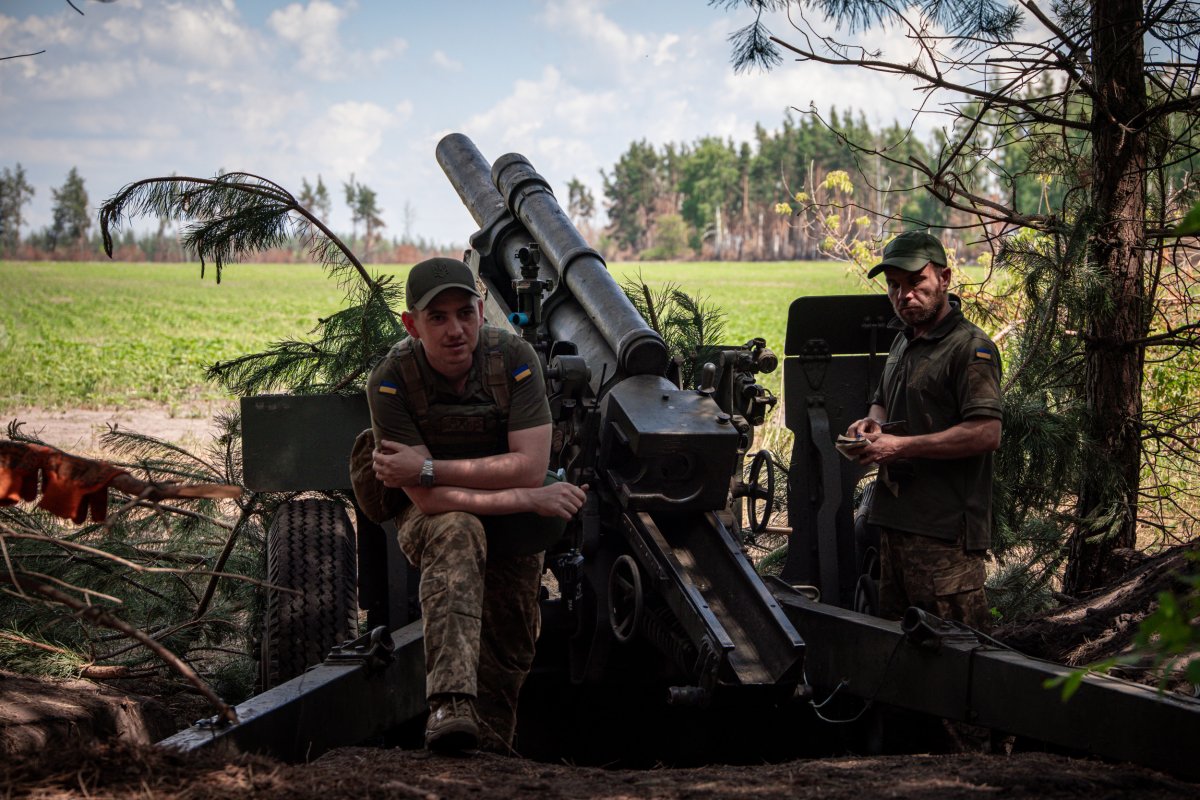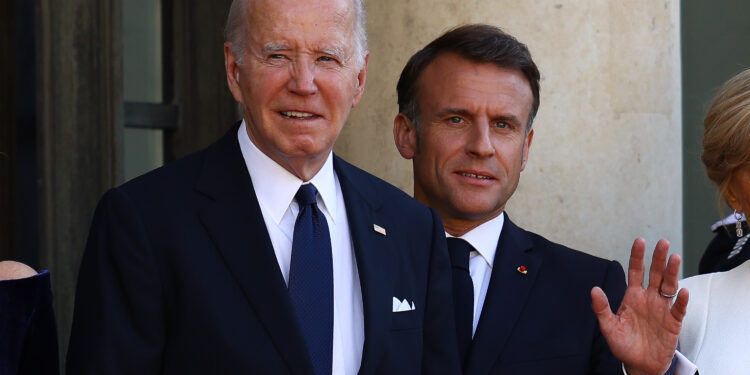A placard reading “Win the peace – not the war – Stop the war in Ukraine! – Ceasefire now!” is pictured during an anti-war demonstration along the Karl-Marx-Avenue in Berlin, on March 30, 2024. Far-right…
A placard reading “Win the peace – not the war – Stop the war in Ukraine! – Ceasefire now!” is pictured during an anti-war demonstration along the Karl-Marx-Avenue in Berlin, on March 30, 2024. Far-right populist parties across Europe have sought to capitalize on concerns about Western backing for Kyiv.
More
JOHN MACDOUGALL/AFP via Getty Images
Despite the growing far-right threat, Scholz’s primary challengers still come from the traditional center-right. The CDU/CSU Union alliance won 30 percent of the vote to the SPD’s 14 percent, reflecting its strong position heading into the next national election before October 2025.
“The relative success of the AfD is of some concern, because this party is ostensibly pro-Putin and tends to be regarded as a neo-Nazi party,” Merezhko said. “In the EU, our biggest supporter in terms of military aid is Germany, and the victory of the CDU/CSU is encouraging and means that support will continue.”
Le Pen and Italian Prime Minister Giorgia Meloni appear the big winners of the weekend. The latter’s Brothers of Italy performed strongly, winning the backing of more than a quarter of voters.
But Meloni has twinned her domestic culture war crusades and fierce anti-immigration rhetoric with a pro-E.U. stance and broad support for Ukraine, indicating that not all far-right domestic success runs counter to Kyiv’s interests.
‘Chaos’ in Europe?
The immediate impact of the weekend’s votes will be limited. The Parliament shares co-legislative power with the European Council—which is composed of the heads of state of national governments—in choosing how and when to adopt and amend proposed legislation.
Both bodies also decide on the EU budget and approve the head of the European Commission, which alone draws up legislation.
The ultimate decision-making body regarding foreign policy is the Council, diluting the foreign significance of this weekend’s vote. Nonetheless, the shifting balance of power in Parliament poses “a risk of growing divisions and even chaos,” Zerka said.
Such turbulence, he added, “threatens European unity and capacity to achieve compromises, so much in need today given the Ukraine war and the potential for another [Donald] Trump presidency.”
The vote will redraw the battlefield for European Commission President Ursula von der Leyen, a conservative EPP member who is eyeing a second term heading the powerful body. Von der Leyen will need to amass the support of 361 parliamentarians to win, meaning she may have to appeal to Meloni and her far-right representatives. Such a bid, though, might estrange left-leaning backers.

Ukrainian soldiers are pictured at an artillery position on June 9, 2024 near Vovchansk, Kharkiv Region, Ukraine. Ukraine remains heavily reliant on Western support in its defensive war against Russia.
Ukrainian soldiers are pictured at an artillery position on June 9, 2024 near Vovchansk, Kharkiv Region, Ukraine. Ukraine remains heavily reliant on Western support in its defensive war against Russia.
Nikoletta Stoyanova/Getty Images
Parliament will also have influence over the bloc’s enlargement. Ukraine—along with Moldova, Georgia, and several other nations where Russia has built significant influence—is currently in the EU waiting room. A more powerful far-right bloc within the Parliament may seek to delay or torpedo the addition of new members, especially those aligned with Moscow’s outlook.
The view from Kyiv, Merezhko said, is optimistic. “We can see that there is strong potential for the creation of broad pro-Ukrainian coalition,” he said. “It is good news that centrist parties have gained more votes than others, especially the EPP, which is viewed in Ukraine as our staunch supporter.”
“On the whole, extreme right and extreme left parties, which are against support of Ukraine, will not play a key role in the European Parliament. Generally speaking, yes, there is some swing to the far right, but not as much as was expected,” Merezhko said.
Uncommon Knowledge
Newsweek is committed to challenging conventional wisdom and finding connections in the search for common ground.
Newsweek is committed to challenging conventional wisdom and finding connections in the search for common ground.
Source link : https://www.newsweek.com/joe-biden-ukraine-coalition-reckoning-europe-france-germany-1910301
Author :
Publish date : 2024-06-10 10:43:15
Copyright for syndicated content belongs to the linked Source.


